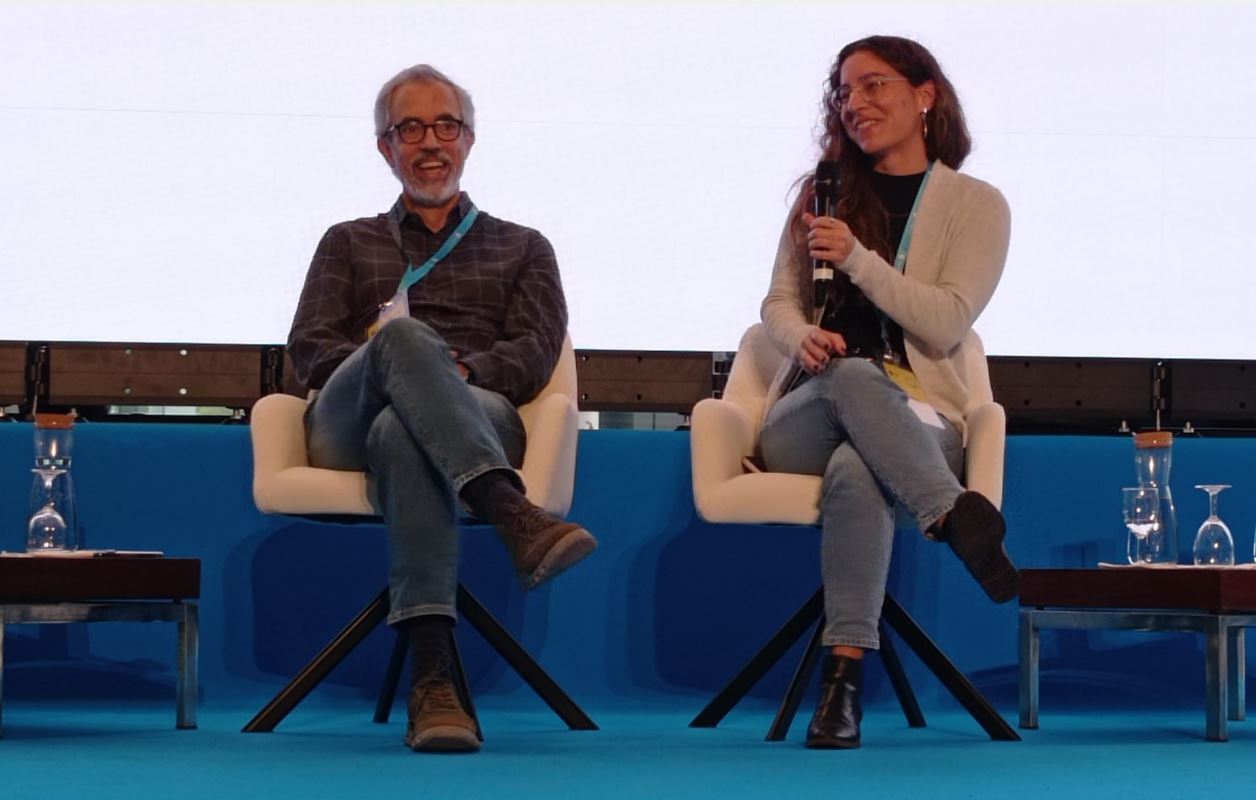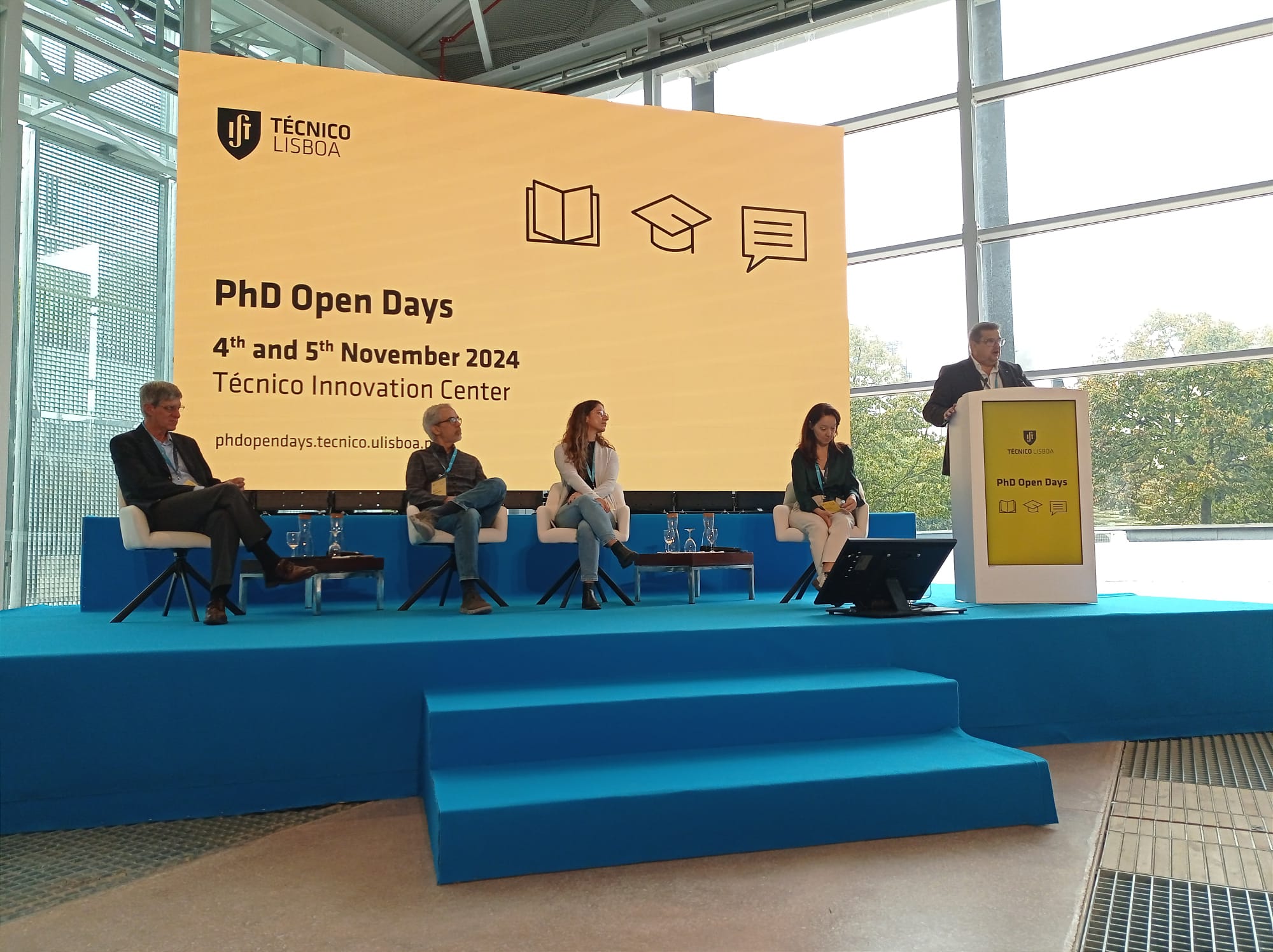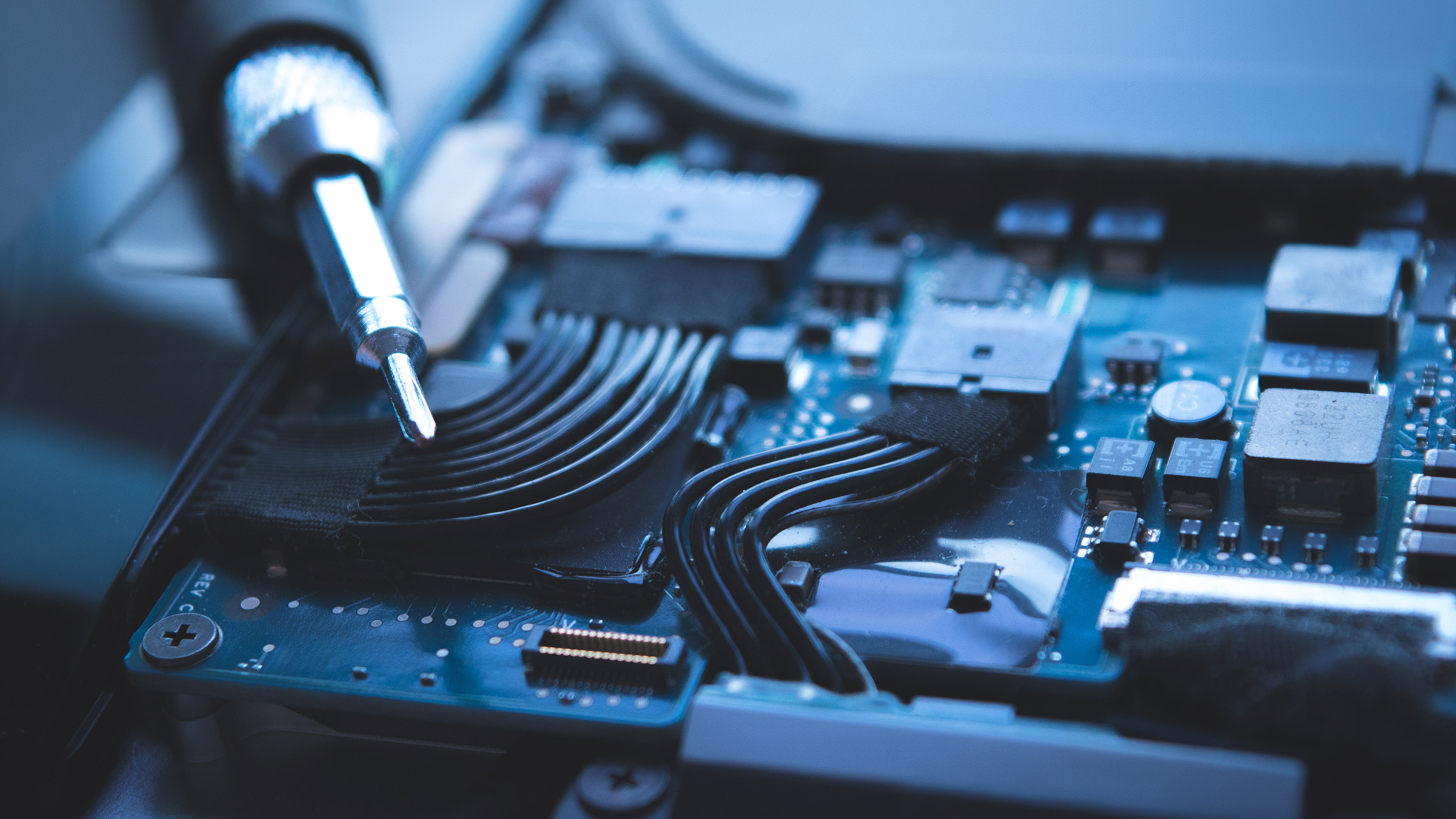Professor Mário Figueiredo participates in the debate on Artificial Intelligence at PhD Open Days

The second day of the 10th edition of the PhD Open Days began with the debate Round Table: "Research in Artificial Intelligence: prospects, opportunities, and caveats". It featured the participation of professors Mário Figueiredo from DEEC, Arlindo Oliveira, and Chrysoula Zerva (both from DEI), and was moderated by Sara Sá.
Mário Figueiredo started by highlighting the role of artificial intelligence in algorithms on social media platforms such as Instagram, Facebook, and X (formerly Twitter), noting its significant impact on various areas of society, including political elections. He emphasized the importance of research in this area, as well as in machine learning.
For like the last 20 /30 years its a wave where the us is dominating, but it doesnt mean its going to be like that all the time.
Professor Mário Figueiredo
When asked about what can be done regarding the fact that none of the companies mentioned in the debate are European, such as Meta, and how this might be considered a problem, the professor began by emphasizing that the United States has a strong academic environment, including for historical reasons, as well as a large, relatively culturally homogeneous population, in contrast to the cultural differences between European countries. On the other hand, investment in science and technology is also different in Europe and the U.S., something that is particularly evident in the case of startups. However, although the American industry may not have the same scale as the European one, he stated that in the countries of our continent, particularly in Portugal, there are currently companies of high relevance in specific areas, highlighting that size is not the only important factor in development and research.

Mário Figueiredo highlighted that Técnico prepares students for the international market, as demonstrated by the fact that many master's alumni start working in other countries after completing their studies. He also mentioned that Portugal is an attractive country for the creation of startups, due to its good telecommunications infrastructure.
Regarding concerns associated with artificial intelligence, the professor emphasized the general societal apprehension about the possibility that AI could produce scientific papers, school essays, and other content, describing this as a "symptom" of the pressure researchers face to publish their work. He also highlighted the increasing need to understand students and assess whether they are acquiring knowledge.
When it comes to the regulation of AI in the school environment, the professor stated that it depends on the context, agreeing that regulation should exist regarding exposure to social media. He said that it should be applied uniformly, as limiting exposure to only some children could have negative results, creating inequality among them. However, he believes that younger children can use resources like ChatGPT, as long as the tools are designed for their age group, since they should be familiarized with something they will work with in the future. Nevertheless, contact and learning should be done carefully, just like the general exposure of children to any kind of information.
As a whole i think IA is a positive for umanity, even equalizing.
Professor Mário Figueiredo
The debate ended with the question of whether Artificial Intelligence is a tool that contributes to increasing or decreasing social inequalities. Mário Figueiredo believes that, in general, it is a beneficial resource, even serving as an equalizing tool in access to information and knowledge. He again emphasized its potential use in various areas of society, such as in payment methods, agriculture, the commercial sector, and healthcare. On the other hand, he pointed out that it could also generate greater inequality, as it might reinforce existing economic differences: a student from a family with lower income might have limited academic performance due to restrictions on the free tools they can access, compared to a student whose family can afford to pay for additional features of the same resource.
Therefore, the use of artificial intelligence can be considered a complex issue, with various contexts and types of use, and it is constantly evolving.
Photography: Daniela Leonardo
